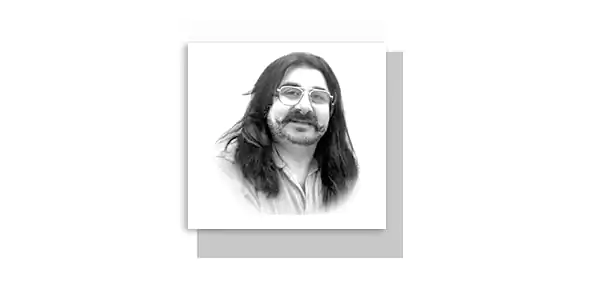Sudan situation worsens
VIOLENT clashes between the Sudan Armed Forces (SAF) and the paramilitary Rapid Support Forces (RSF) have been raging in the capital Khartoum and in other strategic areas throughout the country. While it’s unclear who initiated the fighting, the situation brings the de-facto leader of Sudan, the SAF’s Gen Abdel Fattah al-Burhan, into direct confrontation with his deputy, the RSF’s Gen Mohamed Hamdan Dagalo. Smoke rises following a bombing in the Al-Tayif neighbourhood of Khartoum. The two leaders had previously worked together, toppling the al-Bashir regime in 2019 and orchestrating a military coup in October 2021 that removed the civilian prime minister and cabinet and suspended the constitution. But after the SAF, RSF and civilian political leaders agreed to a new framework for a democratic transition, questions emerged over how the RSF would be integrated into the SAF, as well as over who would assume leadership of the newly consolidated military.
Negotiations to resolve the issues stalled, and tension quickly erupted between al-Burhan and Hemetti in the weeks leading up to the current violence. While immediate details have been difficult to discern, it’s clear the two sides are battling for control of the country’s major institutions. Much of the fighting has centred around locations such as the presidential palace, SAF’s military headquarters and Khartoum’s airport. USA and regional countries have called for an end to hostilities. Efforts to secure a cease-fire are ongoing. There is still a chance to prevent the situation from escalating further. But even with successful mediation, this outbreak of violence threatens to weaken Sudan’s already shaky stability and could undermine peace in the broader Horn of Africa region as well. The RSF had deployed large numbers of armed men into Khartoum, and the SAF had deployed tanks and heavy weapons. And just days before the clashes in the capital, the RSF had deployed to Marowe, a town in the northern part of the country where fighting took place. Both al-Burhan and Hemetti have lost confidence in the political process, shifting instead to the logic of war and violence.
At its foundation, the fighting is a struggle over power in the security sector and the exercise of power in the state. The timing and sequencing of the integration of the RSF forces in the SAF has been one of the main sticking points, as Hemetti argued that reforms for a more inclusive, professional military are needed before his forces integrate. It appears that he also argued to maintain his own paramilitary as a guarantee through the elections. Conversely, elements in the SAF expressed fears that the proposed reforms could hollow out the military and leave it open for the RSF to dominate. The other sticking point is the command structure and the relationship between al-Burhan and Hemetti in that structure. The fighting is different from what Sudan has experienced in the past. During previous civil wars in Darfur, Blue Nile and Southern Kordofan (Nuba Mountains), the Sudanese government or paramilitary groups have fought against armed resistance movements. Now, the SAF is fighting a paramilitary force that was created by the Al-Bashir regime. The RSF is not a “rebel” group — it’s recognized by law and was developed, tolerated and sustained as an instrument of state power, making the situation much more complicated.
This does not change the risk of civilian casualties or alter the chances that a war spreads across the country. The violence has spread to other areas of Sudan, including Kassala, Gedaref and Port Sudan in the east and Darfur in the west. There has been a resounding and quick mobilization by countries in the region and globally calling to halt the violence. A joint statement from the “Quad for Sudan” (the United States, the UK, the UAE and Saudi Arabia) echoed the calls for calm made by each country individually. The UN Secretary General António Guterres released a statement and issued calls to al-Burhan and Hemetti. International concern about this escalating situation even managed to override global competition between the United States and China and tension over the war in Ukraine, with the UN Security Council calling to immediately cease hostilities, restore calm and return to negotiations. The African Union Peace and Security Council also held an emergency session and called for an end to the fighting. At the Council’s instruction, Moussa Faki, chairman of the African Union Commission, was also poised to travel to Khartoum as soon as the security situation allowed.
The Intergovernmental Authority on Development (IGAD), a trade bloc of eight African countries that includes Sudan, held an extraordinary meeting with the heads of state of member countries. IGAD heads of state all articulated their concern about the implications for regional peace and security and planned for three heads of state to travel as soon as flights could land. For the leadership of the IGAD secretariat to convene this meeting is noteworthy, given that Sudan currently serves as the chair. War has the risk of spilling over and spreading instability through the flow of refugees across borders and widening humanitarian crises. Sudan currently hosts refugees from the Tigray war in neighbouring Ethiopia. Chad and Egypt have already closed their borders with Sudan. These clashes could escalate further. Since several days into fighting, people are in dire need of access to water, food and basic goods. Civilians have not been evacuated, and many are stuck hiding from the violence. In such urban fighting, the humanitarian situation will deteriorate rapidly.
—The writer is editor, book ambassador, political analyst and author of several books based in Islamabad.
Email: naveedamankhan@hotmail.com










